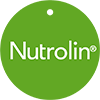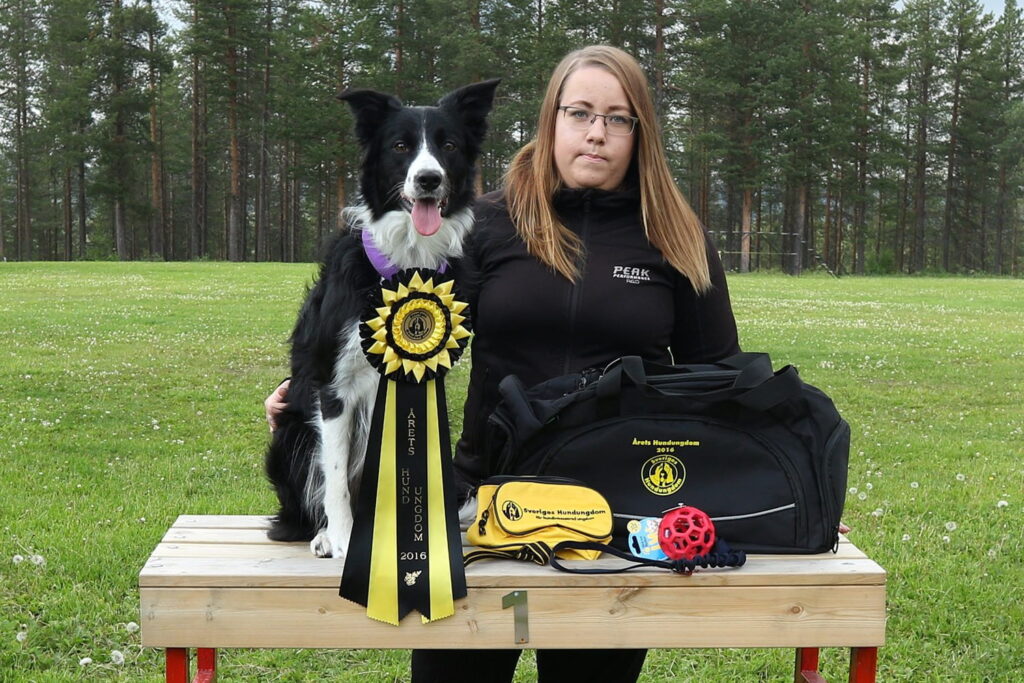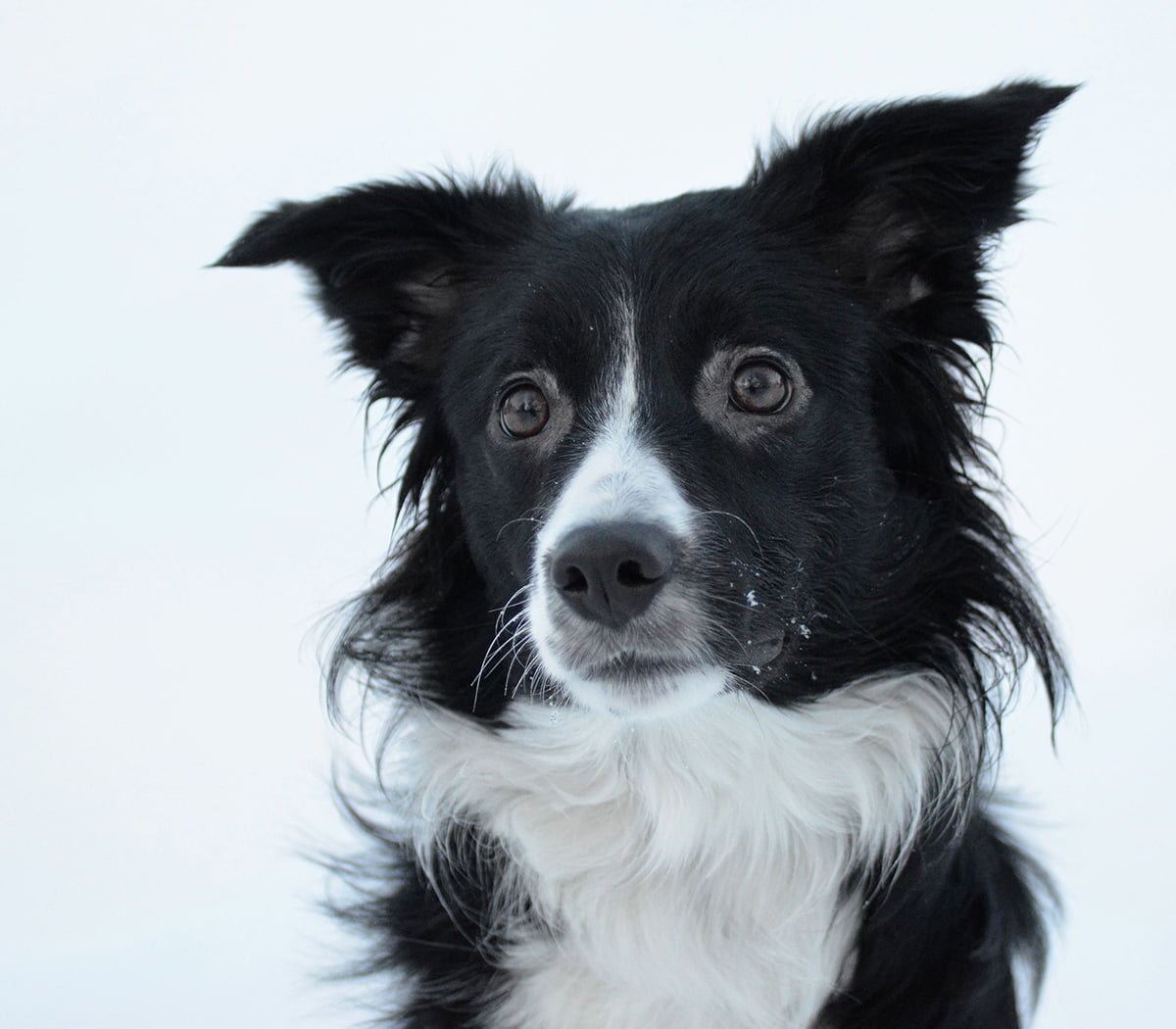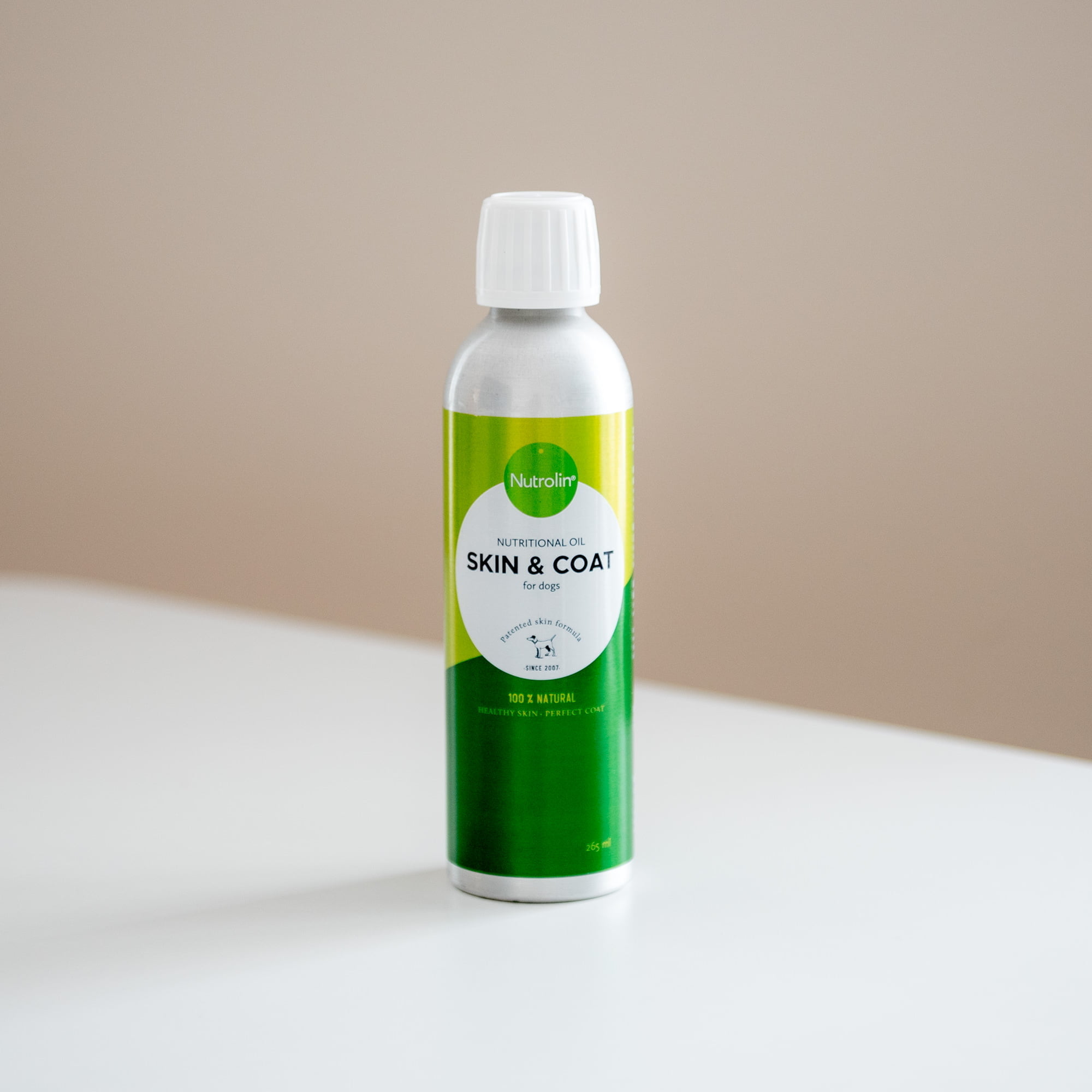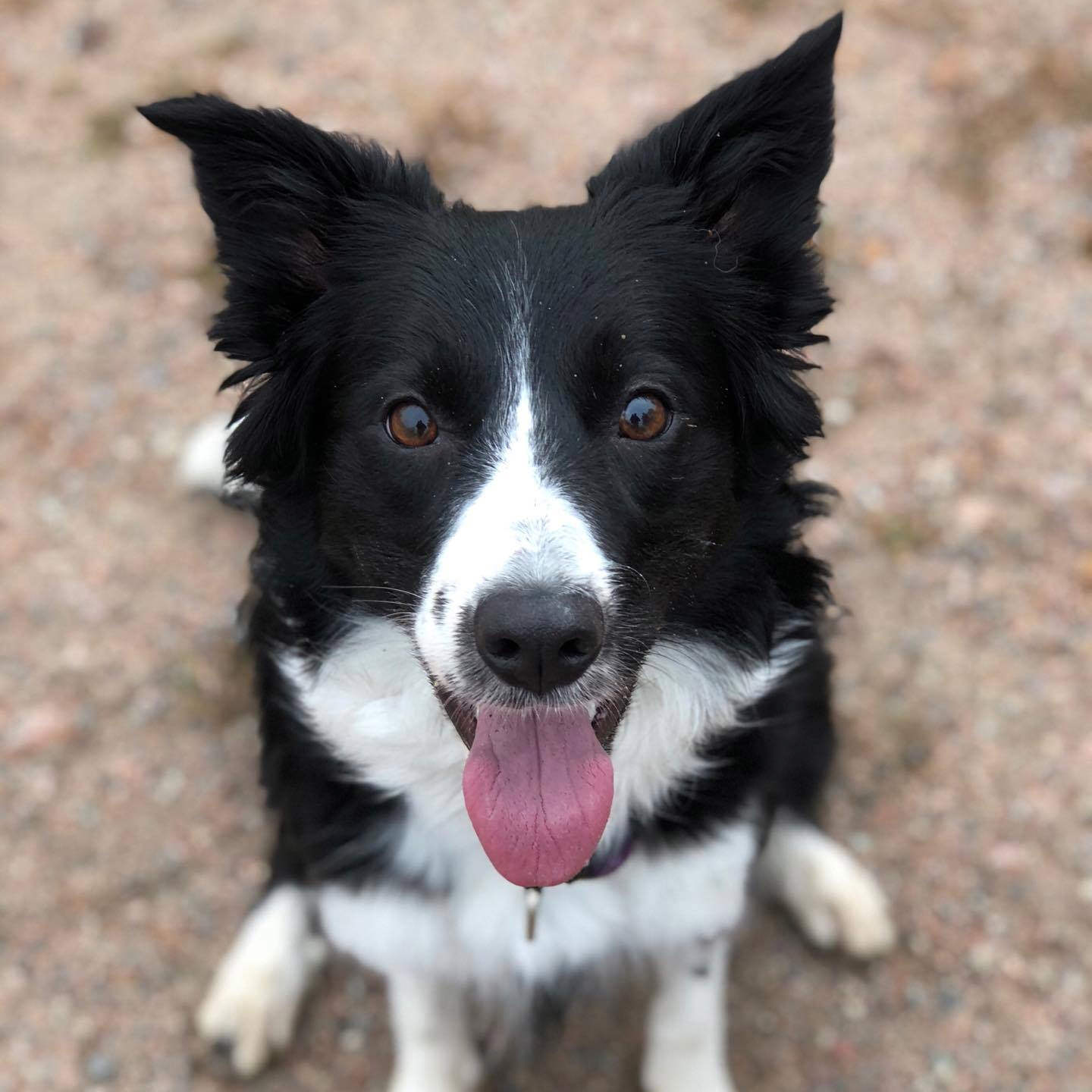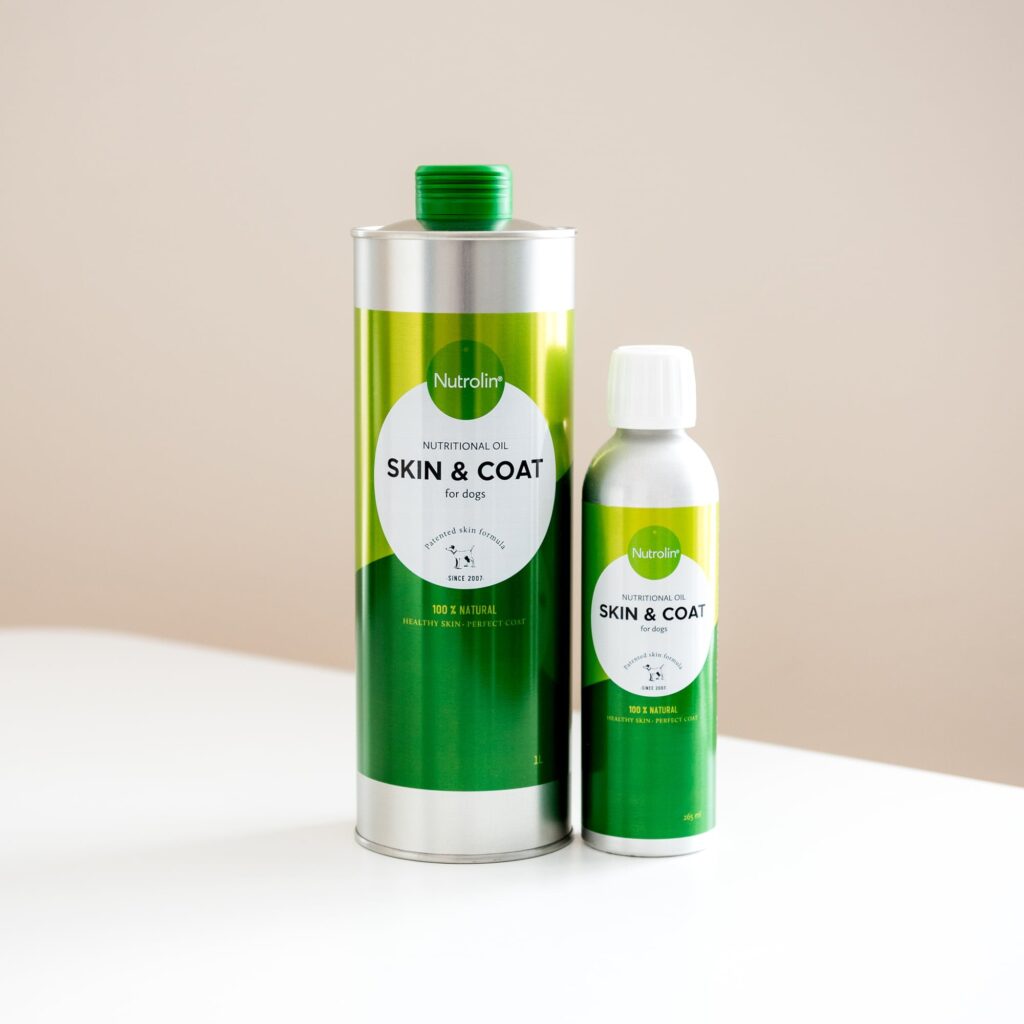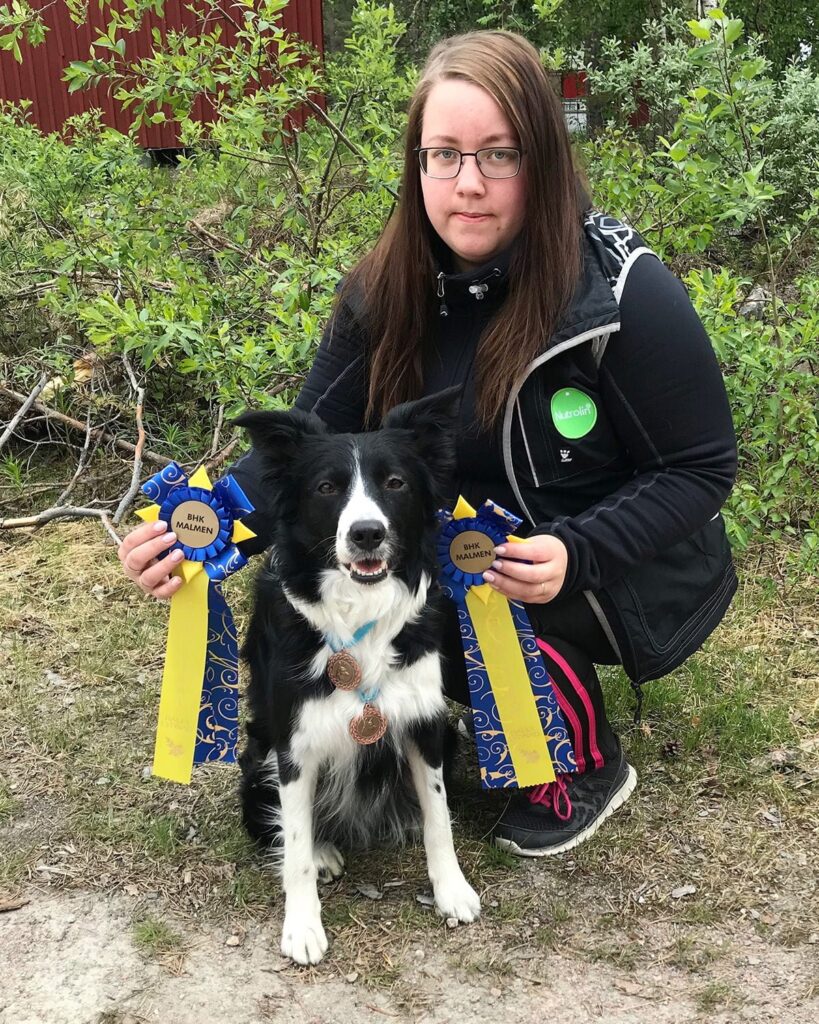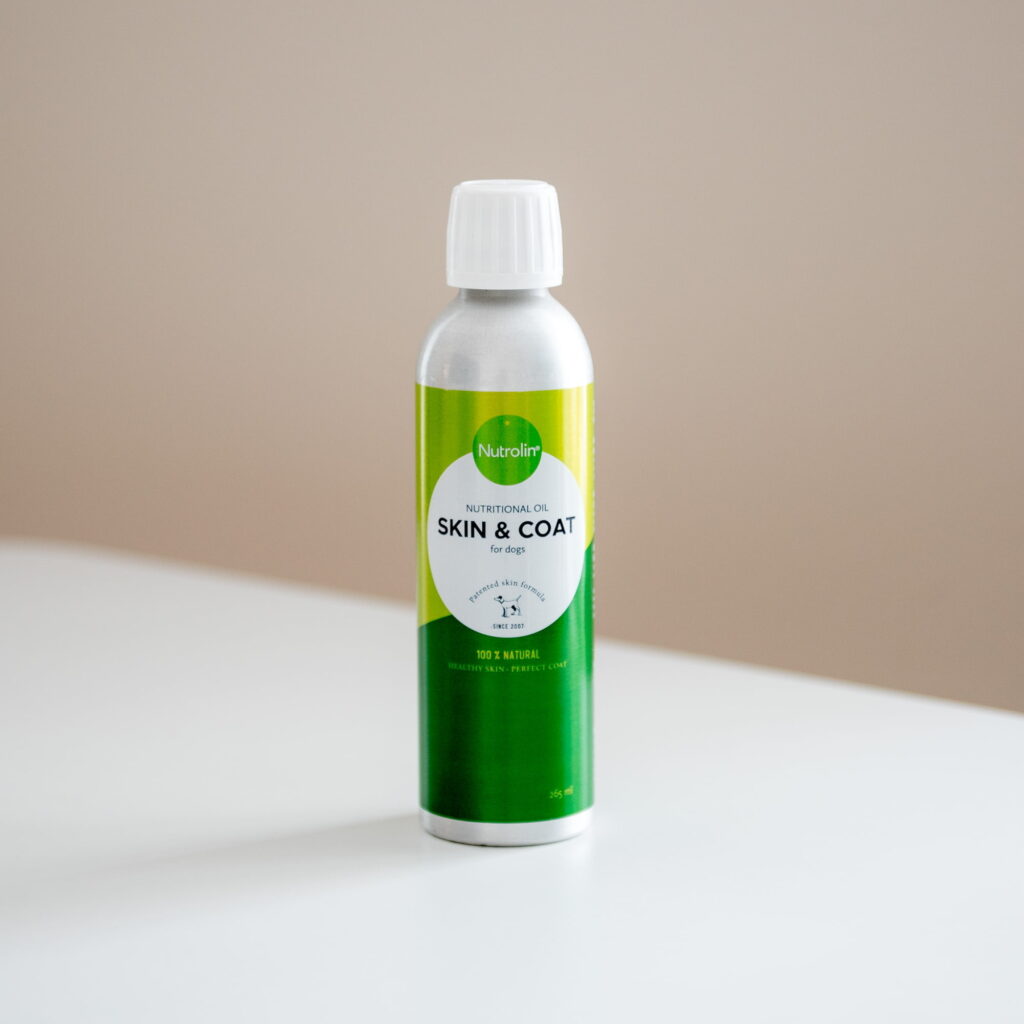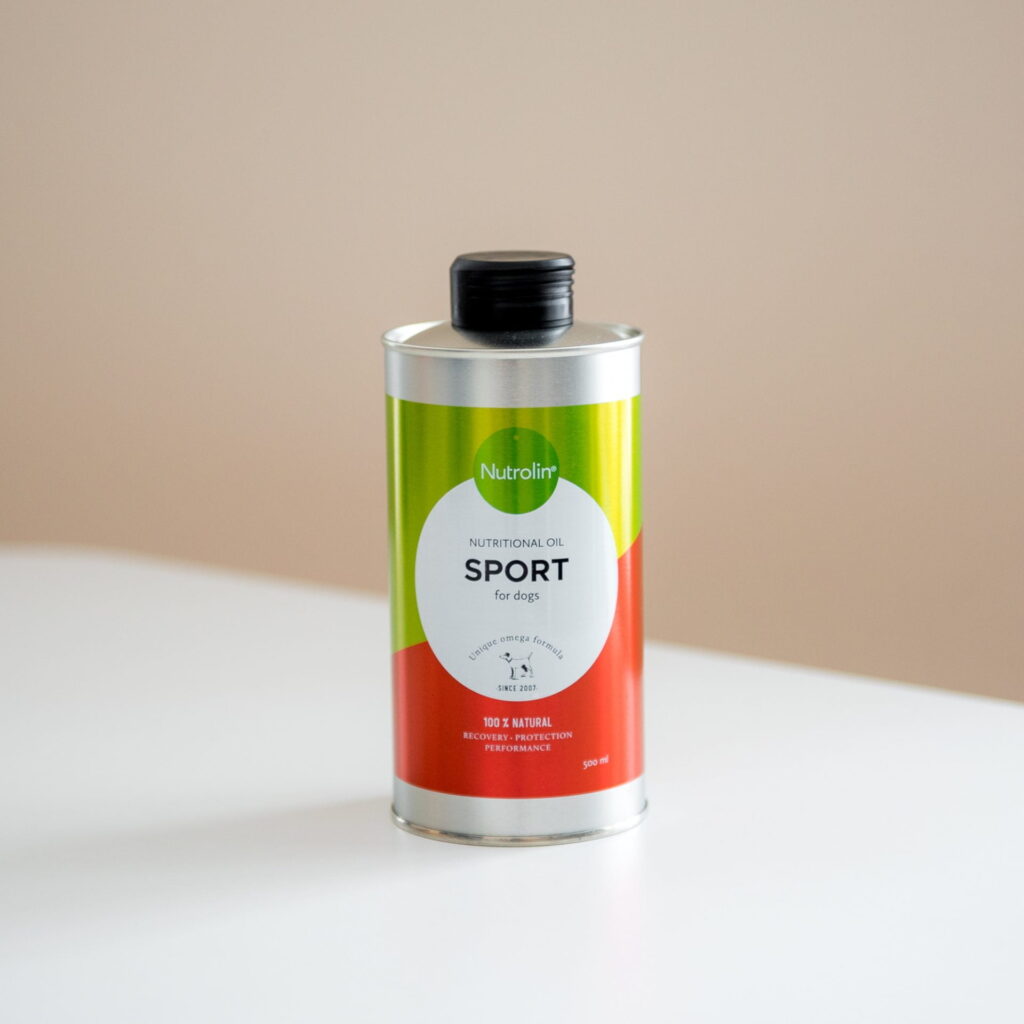Dog,Nutrolin® SKIN & COAT
Life with an allergic dog
“Before I got Lyra, I had not realised that dogs could be allergic to pollen and other airborne allergens. Dust mite allergies are among the most common allergies in dogs. Atopy is a lifelong genetic condition and some breeds are more prone to atopy than others,” says Evelina Hermansen, whose dog Lyra has allergies. We asked Evelina to let us know what it is like to live with an allergic dog. This is her story in her own words:
Is my dog allergic?
Itching is the most common symptom of allergies. If your dog itches, the first thing to do is to rule out parasites and treat possible infections before arranging an allergy test. Environmental allergies can be detected from a blood sample or with a skin prick test.
Living with an allergic dog requires knowledge, a lot of work and can be expensive. It is important to realise that the owner needs to commit to taking care of the allergic pet. Unfortunately, there is no cure that would help all allergic dogs – every case is unique and treatment needs to be planned together with a veterinarian. Even if you find a working treatment and suitable medication and dosage, it does not mean that it will work for the rest of your pet’s life.
Dogs’ allergy treatment is planned individually
My dog Lyra gets allergen immunotherapy, also known as desensitization or hypo-sensitization, which means injections containing small amounts of her allergy antigens. Injections containing Lyra’s individual allergens improve the response of her body’s immune system. She gets an injection every 4 weeks throughout the year. Lyra’s allergen desensitization medication needs to be checked by a veterinarian at least once a year to make sure that everything is on track.
Supplement to support the well-being of your allergic dog
In addition to medication, I find that giving my dog nutritional supplements is an important way to support my dog’s well-being. A right oil supplement can both reduce itching, support the well-being of my dog and enhance the skin’s ability to heal. The skin barrier of an allergic dog is weaker than that of a healthy dog and therefore it is important to support its ability to heal.
In addition to her desensitization injections, I give Lyra a daily dose of Nutrolin® SKIN & COAT oil supplement. It is now 8 months since her cortisone medication was phased out and 2 months since she was last given antihistamine.
I find it convenient to give her different oil supplements for different purposes with different meals or between meals. In addition to Nutrolin® SKIN & COAT, I give Lyra Nutrolin® SPORT because she also competes actively.The competition season has just begun and she has already won an agility competition, she received placement points in another and she scored the full 100 points in a rally-obedience Master class competition. As long as your dog is feeling well, an allergy does not need to prevent them from achieving things or from pursuing any dreams. The well-being of your dog is what matters.
GIVING YOUR DOG BOTH NUTROLIN® SPORT AND NUTROLIN® SKIN & COAT
Nutrolin® SPORT and Nutrolin® SKIN & COAT are the perfect combination when your active dog needs a product that supports the body against strenuous exercise and cares for your dog’s skin.
For maximum effect, give one in the morning and the other in the evening.
Nutrolin® SPORT
Protects against oxidative stress and inflammation during strenuous training
Shop now
 English
English Deutsch
Deutsch